The MMBB project, joined by many urban communities in the Catalonia region, is successfully developing a circular economy for the efficient and waste-free use of wood from public forests.
Text: Juan Manuel Miranda, madera-sostenible.com
Video: Matteo Berlenga
MMBB (Mancomunidad de Municipis Bergedans per le Biomassa - Association of Berguedenne Municipalities for Biomass) is a project developed by 8 municipal councils and the Ministry of Agriculture of the Government of Catalonia. The project is an eloquent example of cooperation between towns of different sizes (for example, Berg has 17,000 inhabitants while Gisclareni has only 30). "The aim of the MMBB project is the sustainable management of our public forests"says Moisés Masanas López, mayor of Saldes.
Sustainable forest management in Catalonia
The project was born in 2012, when 7 municipal councils signed the first agreement, then the Ministry of Agriculture joined the initiative, and at the end of 2019, another local council in Solsonès also joined the MMBB.
"We run several projects"says Moisés Masanas. "First of all, we decided to create a wood-chipboard market for 14 central heating plants that supply 32 targets in our area. This project allows us to use wood waste that would otherwise have zero value".
The first step was the construction of thermal power plants, including a boiler to provide thermal energy for the Berg industrial area.
"Subsequently, we started a project to increase the added value of timber. We feel that if we have a product to manage and the product has little market value, it hurts us. Therefore, we have to make sure that the value of the product is increasing. In addition, we have quality wood that we don't want to use to generate cheap products. With the Wood-Mizer saw, we solve this problem and bring a new, higher value product to the market."

Increasing the value of wood
"We have installed the Wood-Mizer sawmill in Saldes," says Lluis Campmajò Puig, mayor of Gósol. "We cut logs, and for those who need it, we have timber, planks, beams, good wood for everything from furniture to roofing buildings, from beams to renovating the whole house."

"The saw works great"says Lluis Campmajò. "We need to use this to add value to our timber. We are considering building wooden houses in our region, a finished product. We will use wood from our forests, cut it, dry it and build houses."
"We get the highest quality logs from the forest and produce planks of different sizes for carpentry or urban projects that need wood"says Anna Jordà, Wood-Mizer saw operator at MMBB.

"Using the Wood-Mizer LT40 saw, we produce planks of the required thickness. Then another machine, the Wood-Mizer EG300 Wood-Mizer circular saw, cuts them by width and then by length. In this way, we get the right sized products."
The Wood-Mizer LT40 is operated remotely via the control station, from where the operator controls all parameters. Here the operator sets the required plank thickness, and then the saw head is automatically positioned in the right place.

MMBB produces planks in standard sizes: 27 x 155 millimeters wide; the length depends on the length of the log cut. It currently cuts six or seven logs a day.

"The LT40 saw is quite easy to use," says Anna Jordà, "Once you start the saw and make a few cuts, you see how it works, you understand everything and the work becomes easy. It doesn't require much effort because the machine does almost everything by itself. The LT40 saw picks up the logs from the ground, loads them onto the bed, cuts it, and finally unloads the planks to be stacked."

"The LT40 is very reliable and safe to use. The saw head moves but the operator does not go after it. It is controlled from a remote panel; there is no danger while working. And changing the ribbon is also easy. The machine doesn't require difficult maintenance. Just remove the sawdust from the cutting area and you can continue working."
Developing a circular economy
MMBB aims to develop a circular economy and create jobs in the villages participating in the project.
"We are not worried about depopulation because we are already affected by it. But we can do something important to repopulate these mountain villages. We need real, full-time jobs, not just seasonal."
Many people from this region already work for MMBB. There are 34 people employed on staff and another six auxiliaries.
Another idea is to improve the management of the heating plant. "We sell thermal kilowatts now, but we have fluctuations in consumption. We produce electric kilowatts, primarily for our villages, and then we sell into the grid, and that will make us more flexible in management."
Project participants would not achieve these results if each municipality worked alone, auctioning only its own timber. The number of workers would also be lower due to seasonality. They now realize higher profits based on economies of scale, adding value to the product and being more efficient.
"We must continue to improve where we are not yet efficient enough and continue to create much-needed jobs."
More stories like this: https://woodmizer.ro/articles



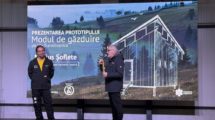

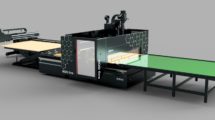
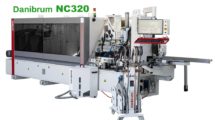

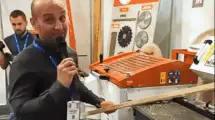


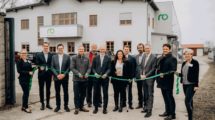




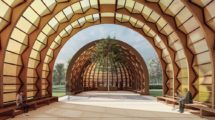

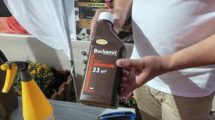
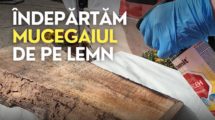
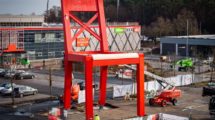

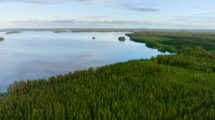
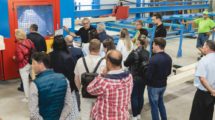

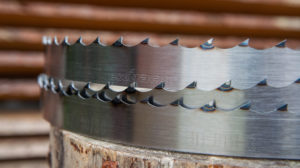
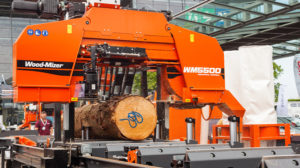
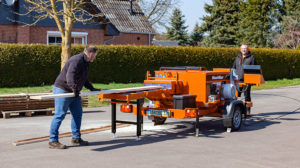

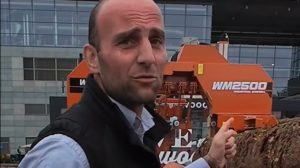
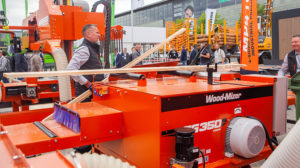
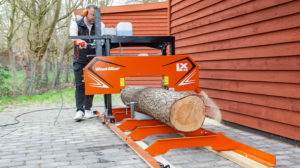




Add comment